
As someone who’s had arthritis since the age of 2, I’ve experienced many awkward moments with strangers who simply must draw attention to my disability. Whether they meant well or not, comments like, “Do you have a license for that wheelchair?” or “Let’s race!” usually don’t sit well with me.
Even worse, however, is when people ask what’s wrong with me. And topping that was the time when someone asked me if I had had a stroke while in line at a local eatery. Comments like these always seem to catch me off-guard, often leaving me hurt and speechless.
Cheryl Price, of Florida, can relate. “Someone once asked me if I was hit by a train. I asked why and they said they once heard of someone who was hit by a train. (It was) bizarre,” said Price, who was paralyzed at birth. “Someone else asked if I fell out of a tree. They were serious. (It) makes me scratch my head.”
In search of the proper comeback for people like myself and Price, I turned to Kara Ferris, executive director of iamviable.org, for advice. “The ignorance of people continues to amaze me,” Ferris admits. “The thing which leaves me most saddened is that they have not had the experience of truly knowing someone with a disability; therefore, they simply have not been able to look beyond a disability and see the person.”
To help foster acceptance and understanding, Ferris created iamviable.org, an online community where people can celebrate the unique abilities of all individuals. Although she does not have a disability herself, Ferris was “blessed to have parents whose hearts and home were very open to those with disabilities.”
The Root of Ignorance
According to Ferris, people tend to make hurtful comments for one of several reasons:
1) Ignorance– These individuals have “a total lack of understanding of disability in general and may not be able to filter what they say, (so they) blurt out what they are thinking,” Ferris explains.
2) Inexperience- Not everyone has had the opportunity to interact with people who have disabilities. “They don’t have anyone in their lives who has a disability,” Ferris says. “Therefore, they may be trying to find a way to interact but really don’t have a clue what to say.”
3) Personal pain– “There will always be people who have such a low self-image that they must find someone else to belittle in trying to feel better about themselves,” Ferris says.
Responding to Rude Remarks
After being on the receiving end of an insulting remark, it’s easy to want to snap back at the offender. Having been nearby when unwelcome comments were directed at friends with disabilities, “I can see how, when you are the one that the comment is being directed at, it would be very difficult to respond without attaching some really negative emotions,” Ferris says.
Depending on who was involved, “I’ve seen both positive and negative responses and the outcome of both,” she recalls. Based on that, “let me give you some different approaches to these kinds of uncomfortable circumstances.”
If someone makes a rude comment or asks a personal question, like “What’s wrong with you?”, there are a number of ways a person with a disability can respond with dignity, Ferris says, such as:
1. Having a Sense of Humor
You can respond in a way that lightens the mood, Ferris says. However, “be careful about using sarcastic humor, which is usually delivered like a killer bee and meant to sting.” An example of sarcastic humor, Ferris says, would be, “Oh no! Did I put my legs on backwards again?”
2. Being Open and Honest
Use the moment as an opportunity to “help people become educated, but you only have to disclose what you are comfortable with,” Ferris says. For example, you might want to say, “Nothing’s wrong with me. Are you talking about my disability? Well, I had an accident when I was young and now I need to use a wheelchair. Or, I was born with spina bifida. Have you ever known someone who uses a wheelchair? There are still lots of things that I can do.”
Maggie Redden, Ms. Wheelchair New Jersey 2013, follows a similar approach. Sometimes, “people try to assess my situation without knowing anything about me. I get told that I should use a power chair because they’re so much easier. I kindly respond with, ‘For some people, yes, they are. For me, a power chair doesn’t make sense. My manual chair is all I need. I’m fully independent, competent, and capable as is.’,” Redden says.
See Also: 5 Awesome Alternative Ways to Anser “Why You’re In A Wheelchair”
3. Saying Something Nice
While on the road recently, Ferris encountered another driver who didn’t like how she was driving, so he hollered and cursed at her. In response, “I smiled, waved, and said, ‘Have a great day!’ I really, truly was not going to let his hateful attitude get to me. My thoughts wanted to stick on all the choice names that I would love to call him and my anger level started to rise, but instead I choose to return his insult with kindness—and I got over it very quickly! He was the one with the problem, not me.”
Ferris recommends everyone take a moment to think before responding to negativity. “Whether we have a disability or not, there will always be people who say things that are very hurtful. I think the very best thing that we can do is think about our own response.”
Before responding, Ferris says to ask yourself:
- Why did I get so angry over that comment?
- What happens to me when I respond out of anger?
- What’s the real issue for me?
- How important is it what other people are thinking about me?
4. Forgiving and Forgetting
“If a comment is hurtful and it leaves me upset and angry, I am really the only one who can remedy the situation. If I am hanging onto the hurt and the anger, that is my issue,” Ferris says.
In the end, it’s best to quickly forgive those who’ve hurt you and move on, Ferris says, adding, “Hurt people usually hurt people.”
Stop the Staring
Oftentimes, children will stop and stare at people with disabilities. They may even ask what is “wrong,” which can be hurtful and embarrassing. Fortunately, there are a number of ways people with disabilities can appropriately respond to even the youngest crowds, Ferris says.
“If young children stop and stare or ask questions, always smile and respond warmly. They are just curious and probably don’t understand what they are seeing,” Ferris says. “Also, realize that many parents do not know how to handle their children who are staring or making comments. They may be embarrassed by something that their child says or does and they are not sure how to handle it. Your response will make a huge difference.”
Advice for Caregivers
Those who care for people with disabilities—whether it be a loved one or a personal assistant (PA)—may also feel hurt or uneasy when someone makes an insensitive remark about the person with a disability.
Laura George, whose late husband had a spinal cord injury, still recalls being offended by someone at her daughter’s pediatrician’s office. “(The person said to my husband) Shhh! Don’t tell that child why you are in a wheelchair! You’ll scare them!”
Ferris says there are a number of ways caregivers or loved ones can respond in situations like this. “I think it’s important to educate them as well to the rudeness and ignorance of others,” she says. “This might be a new situation for them, or something that is said may catch them off guard. If this happens, talk to them alone about how to respond the next time. I think it’s always best for a PA to refer the question directly to the person with the disability, if they are able to respond.”
For example, Ferris said family or personal assistants might want to say:
- Hey Kelly, this gentleman is wondering about your disability.
- This is my friend, Kelly. Do you want to ask her about her disability?
When encountering inquisitive or curious children, family or “a PA can help, (by saying) ‘Hi there! This is my friend Kelly. Her legs don’t work very well so she has to use a wheelchair! Have you ever seen a wheelchair before?’,” Ferris suggests. However, as mentioned, the person with a disability may not want to engage with children or the general public, so it’s best that family or the PA knows how the person would prefer they respond ahead of time.
Celebrating Our Differences
Hoping to prevent these types of situations from occurring in the first place, Ferris often tries to enlighten others by telling them that everyone was created with purpose and intention. “The fact is, we all are different,” she says, adding, “We all have unique gifts and abilities; we all are a needed and a necessary part of our community.”
Fortunately, for every person who somehow manages to say the wrong thing, there are many others who express compassion and understanding. In fact, Ferris has a friend with cerebral palsy who once told her, “I get to see the best in people. I ask people for help, and I get to see how they respond. Usually people will go out of their way to help me. I’m always grateful for the kindness and generosity of others.”
For more advice, please visit: www.iamviable.org.
Photo credit: Sherlock77 (James) / Foter / CC BY-NC-ND

Find your perfect Wheelchair Van
Select from thousands of wheelchair vans for sale from hundreds of nationwide dealers
The Mobility Resource has one of the largest selections of Dodge, Toyota, Chrysler, Honda, Ford, Chevrolet wheelchair vans
View All Wheelchair Vans






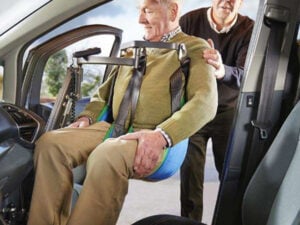







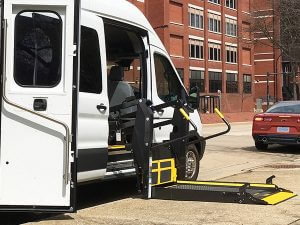


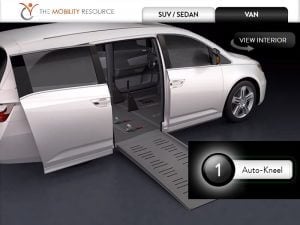



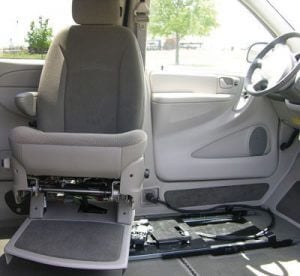
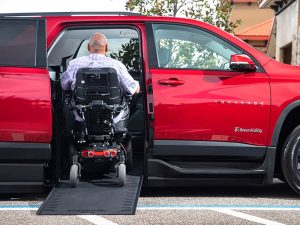








Tweet
Share https://www.themobilityresource.com/blog/post/when-ignorance-strikes-how-to-craft-the-perfect-comeback/